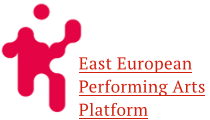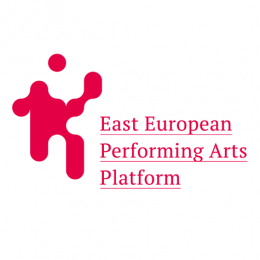Восточноевропейская платформа перформативного искусства (EEPAP)
поддерживает развитие современного перформативного искусства
(танца и театра) в 18 странах Центральной и Восточной Европы.
DESANT 2013: workshops for dramaturges and critics during DRAMA.UA festival – Lviv / Ukraine
DESANT 2013: workshops for dramaturges and critics during DRAMA.UA festival – Lviv / Ukraine
DESANT in Lviv: 21-24 November 2013
Desant activities in Lviv were part of the educational programme of the fourth edition of International Festival of Contemporary Dramaturgy Drama.UA in Lviv.
The fourth edition of Drama.UA comprised a series of artistic events, workshops and debates, which brought to Lviv artists, curators and critics from all over Ukraine, as well as representatives of key cultural institutions, universities, and theatre periodicals from Europe and Russia. Going against the dominant and archaic tendency to promote narrow specialisation, the festival’s curators strove to ensure a flow of ideas and an exchange of experiences between artists and theoreticians representing various areas of theatre, different schools, and diverse ways of thinking. A group of international experts taught in-depth seminars on directing, dramaturgy, curatorial and managerial activity as well as theatre criticism.
Drama.UA Festival and EEPAP jointly organised dramaturgical workshops: “The City as a Pre-text” and “School of Critics”. On the initiative of Ukrainian curators, an EEPAP working meeting entitled “Former East = Future West?” was also included in the programme of the festival.
“The City as a Pre-text” - dramaturgical workshop
Instructors: Iga Gańczarczyk (Poland) – theatre director, dramaturge, theatre researcher; Lukáš Jiřička (Czech Republic) - dramaturge, author of radio art projects, journalist
The starting point for the four-day workshop was an attempt to define the task of the dramaturge: in relation to the director, to the text, within the framework of the performance. The instructors examined various models of dramaturgical work with reference to theatrical praxis in Poland (Iga Gańczarczyk) as well as the Czech Republic and Germany (Lukáš Jiřička). Together with the participants of the workshop, they read the city as a kind of performance space. They sought narrations that would help redefine public space, investigating what might happen to the theatrical event if its structure is modified to incorporate documentary material or factual rather than literary protagonists, with artistic actions transferred from the theatre into the space of the city.
The workshop was the first stage of educational work (continued during the subsequent Desant editions) focused on the work of the dramaturge in performative arts (a function which is virtually non-existent in Ukraine). At the same time, the workshop was very firmly rooted in the local context. Twelve participants (directors, playwrights, journalists, historians from several cities in Ukraine) prepared their own projects concerning Lviv: its residents, its streets and buildings, the forgotten or psychologically repressed fragments of its history (such as the plight of Lviv Jews). The outcome of the workshop – a first draft of potential performances and research projects – was presented on 24 November in the auditorium of the Lviv Palace of Arts.
“School of Critics” workshop
Instructors: Martina Černa (Czech Republic) – theatre researcher, head of the International Cooperation Department at the Institute of Theatre and Arts in Prague, Iulia Popovici (Romania) – theatre critic and curator, editor of the periodical “Observator Cultural”, Tamás Jászay (Hungary) – theatre critic, editor of the periodical “Revizor”, Witold Mrozek (Poland) – theatre critic, connected among others with the daily “Gazeta Wyborcza”, Paweł Soszyński (Poland) – theatre critic, deputy editor of the periodical “Dwutygodnik.com”.
The “School of Critics” workshop was attended by young theatrologists, editors of cultural periodicals, and students of humanities from various cities of the Ukraine. The workshop was organised as a critical tandem, with two instructors from different countries teaching two classes each. The participants discussed the local specificity of criticism as a profession, the tasks of the critic with regard to artists and audiences, and the practical aspects of the education of the critic, as well as the entry into the profession. The workshop concluded with a panel discussion of critics and theoreticians from eight countries (Ukraine, Poland, Czech Republic, Romania, Hungary, Serbia, Belarus, Russia), who were guests of the Drama.UA festival and EEPAP. The participants of the debate viewed theatre as a space inextricably connected with social and political reality. The postulate of supporting a theatre that reacts to this reality, providing a critical commentary and new solutions for initiating a dialogue with the audience, was given more credence by the events taking place in the streets of Lviv. On 21 November 2013, during the Drama.UA festival, street demonstrations broke out in reaction to the then president of Ukraine breaking negotiations concerning the association agreement with the European Union. The demonstrations would soon turn into the mass protest at the Kiev Maidan – the Ukrainian Revolution of Dignity.
DESANT has been carried out by the East European Performing Arts Platform (EEPAP) since 2012 and is addressed at artists, critics and theoreticians of performing arts in the Eastern Partnership countries. The DESANT activities are rooted in local reality and related to a specific socio-political context; they combine workshop elements with theoretical reflection and are created in close cooperation with partner organisations.
The aim of the Desant educational project is to support bold, innovative initiatives and projects, enhancing the competence of artists, critics, and audiences, deepening the knowledge on those theories and practices in performing arts which construct culture not as a commodity to be consumed but an instrument to be utilised in a conversation about the present.
The organising principles behind Desant activities are rootedness in the local reality; reference to a specific socio-political context; combining practical activities with a cultural and sociological reflection. Apart from practical actions (thematic workshops, staging a production, writing texts), we include elements of theory-based activities (lectures, film and stage production screenings, debates). We try to connect diverse environments, motifs, as well as creative and research strategies, in this way releasing theatre from the “high art" niche in which it was locked by the tradition of state-run academic theatres, still dominant in Eastern Partnership countries.
The programme of Desant is created in close cooperation with our partner organisations as well as cultural activists and artists from the countries where the activities take place. The curators of Desant are not interested in a one-way export of knowledge and specific (“good”) practice. What they care about is exchanging experiences, infecting each other with ideas, working together. They do not want to measure the effectiveness of this joint work by means of an instant product.
Curator of educational project DESANT: Joanna Wichowska
Cooperation (2013-2014): Goran Injac
Idea and coordination of the of the events in Lviv: Joanna Wichowska / EEPAP, Oksana Dudko and Drama.UA festival team
Partners: Art Workshop Drabyna, International Festival of Contemporary Dramaturgy Drama.UA
- : Iga Gańczarczyk (Poland), Lukáš Jiřička (Czech Republic), Martina Černa (Czech Republic) Iulia Popovici (Romania) Tamás Jászay (Hungary), Witold Mrozek (Poland), Paweł Soszyński (Poland)
Production: Daria Odija (EEPAP) and Drama.UA festival team

